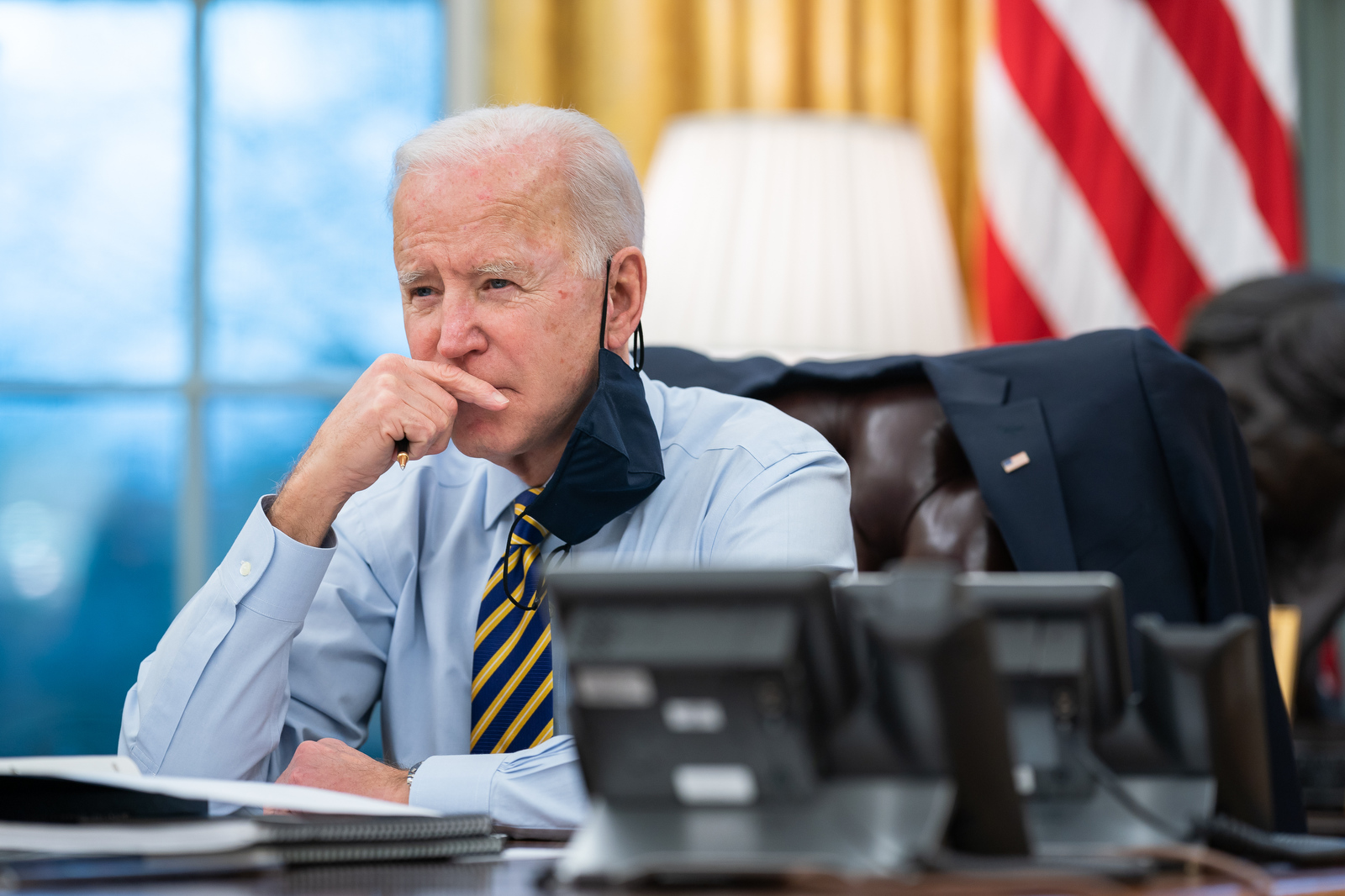

Will this be the year and the President?
Posted on April. 21. 2021
BY STEPAN PILIGIAN | The Armenian Weekly
Springtime is upon us! Warmer weather (it’s all relative) has returned and so has the greenery to those areas where trees and plants appeared bare from the winter. Calendars are slowly filling up with family events (particularly important after the wipeout that was 2020). But for American Armenians, there is always an added measure of suspense this time of year. Will the Executive Branch of the United States government (the President of the United States), which sets foreign policy, dare to utter the truth and call what happened to Armenians from 1915-23, not simply an atrocity, a massacre, a human rights disaster or as the Turks call it “the events of 1915,” but a GENOCIDE? Plain and simple.
A recent op-ed published in Newsweek by Knox Thames, a former State Department official stated, “There is no historical question of whether these atrocities happened. There is no legal question about what to call them. But there is a political question about what to say.” He went on to emphasize that the murder of 1.5 million people meets the threshold of the 1948 UN Convention on Genocide. The facts have always been clear, but political expediency is always the issue. In 2019, when both houses of Congress passed resolutions recognizing the Armenian Genocide, it was somewhat of a perfect storm with anti-Trump democrats opposing the President’s perceived support of Erdogan coupled with the highly visible expansionist Turkish foreign policy (Aegean, Libya, Syria, Iraq, etc). The resolutions are non-binding but will stand year to year as an expression of the Legislative branch of the government. It is an important victory!
Genocide recognition and April 24 in this country have become more about what the President will say. Countless US Presidents have acknowledged the brutality and horrific nature of the Armenian Genocide but have stopped short of characterizing it as “Genocide” for purely political reasons. There was a time when politicians actually challenged the veracity of the Genocide. Thanks to Armenian scholarship and our relentless advocacy, those days are in the past. Regardless of whether they were broken campaign promises (Obama) or ambivalence to the matter (Trump), no one except President Reagan, in a secondary reference, has uttered the word that Armenians long to hear.
Before we enter the 2021 version of this drama, the success of advocacy should be noted. The persistent campaign of genocide recognition advocacy has resulted in 49 states and both houses of Congress on record. It is correct to state that this work does not directly alter US foreign policy, but the efforts to date, particularly in Congress, set an important foundation to influence the President. As someone who has advocated for more balance in our “genocide centric” culture, I applaud the activity of the ANCA and the Assembly for their impressive passion to impact government policy.

The 2021 version of the “April drum roll” has its own unique twists. President Biden is a veteran Washington insider, but he’s new to his current role as President. He is anxious to distinguish his administration from the previous one, particularly in areas of foreign policy. Biden also has a long history of supporting this issue during his decades of service as a US Senator. During the eight years of his serving as Obama’s Vice President, it is clear that his views did not prevail. The same can be said for Samantha Power, who served the Obama administration as UN Ambassador and in the National Security domain. The forces that convinced Obama eight times that it is “not the right time” or that it is “the wrong message to our ally Turkey” still exist in the corporate community and State Department. The question is whether the eternal environment (specifically Turkey’s behavior and the geopolitical landscape) can create something similar that led to the Congressional action in 2019. The same Congressional leaders, both Republican and Democrat, have either blocked or passively ignored previous attempts. These are politicians who reserve the right to change their position if it serves the current environment.
Armenians have become generally cynical on this decision given the decades of frustration. The rumors of Biden honoring his promise have been met with, “no way” or perhaps “I’ll believe it when it happens.” Other Armenians line up with partisan American perspectives; Armenian democrats are more optimistic while Republican Armenians are more pessimistic. The reasons for caution continue to exist. They are the forces of advocating Turkey’s importance in US interests and the impact recognition will have on that. The reasoning for optimism (or at least hope) are quite interesting this year. After decades of recognition support in the Senate, Biden was silenced as Vice President under Barack Obama. The perception was that he either had insufficient influence or was unwilling to take on that fight. Either way, it did not play well with many Armenians that he repeated his call as candidate Biden. He has been very quiet about the eight years under Obama. To her credit, Power has been contrite about her failure during the Obama years, commenting that she let down the Armenians and disappointed the community. Her transparency is appreciated as it illustrates that mere support is not always enough to overcome the gauntlet of Turkish supporters in the State Department and corporate America.
Congressional resolutions are one thing, but recognition from the Executive Branch is a foreign policy statement. There are many in this country that have fallen for the importance of Turkey even as Erdogan continues to insult America, democracy and western values. Despite the inherent resistance, it certainly would be embarrassing for the Biden administration to “punt” on the recognition this year given the overt statements made by his administration including the cabinet hearings. “It’s not the right time” simply has no credibility.
Another factor in our favor is the continuing irresponsible behavior of Turkey as a modern nation. The list of egregious violations that are not in US interests is extensive. The threats to fellow NATO members Greece and Cyprus are a dangerous risk to NATO. Turkey has openly defied US interests in Syria, Libya and Iraq with military and financial incursions. Of course, their criminal activity with weaponry, mercenary jihadists and sovereign violations in Artsakh and Armenia are sadly reminiscent of the hatred and racist policies of Turkey towards Armenians. Their violent and destructive assaults of Kurdish citizens in Turkey reflect their intolerance of minorities and democracy. Recently, Turkey pulled out of the Istanbul Convention, which is the most extensive international agreement on violence and discrimination against women. They have also violated the integrity of NATO by purchasing the S-400 missile defense systems from Russia making a mockery of the intent of NATO. Can their message to the United States be any clearer? Of course Turkey will use some of these violations to leverage Europe, the US and even Russia. For years Turkey, a fake ally, has played the US off against Russia. The S-400 fiasco is the latest. Thankfully, American patience has worn thin. They are not allies. They do not respect American interests, and we do not have shared values. If President Biden is anxious to display the differences between his administration and Trump’s, recognizing the genocide now would be another clear differentiator.
The argument against recognition is based primarily on Turkey hurting US interests in response. Hurting US interests? That has almost been a formal policy of Turkey under the pseudo sultan. In fact, Turkey is in position to hurt the US given the wretched state of their economy. US sanctions on Turkey would put their currency and economy in a depressed state. They should be thankful that the US has not done that to date given their duplicitous behavior the last 10 years. History has shown us that the Turkish reaction to genocide recognition has more rhetoric than bite. Trade relations with France and Germany grew after recognition despite the threats of repercussions. The climate has never been better for Biden to make history. Turkey needs to get a clear message for its continuous transgressions and recognizing the Armenian Genocide may provide Biden with the right vehicle. When the Turks feel threatened, they will always offer a concession to quell the anger of the west. The United States must resist these attempts by Turkey to postpone the truth.
The climate has never been better for Biden to make history.
Obviously, the US recognition would be the crown jewel of our long journey. It would probably influence two allies, Israel and Great Britain, who are disgraceful holdouts. It would usher in the era of reparations as Turkey would continue to feel the pressure of major nations. There are no guarantees in this world where self interest rules, but it could allow our advocacy to refocus resources as the march to justice continues. As always, there are two possible outcomes. President Biden can fulfill his commitment, join the nations with honor and distinguish himself in history. The other possibility is that he caves to the perception and myth that Turkey is a valuable ally and the relationship would be damaged. We should be prepared for either outcome. Biden owes the Armenians support only because he stated his belief in the recognition and committed to act with the authority of the President. If I were him, I would do it. Say the G word loud and clear! Do it because America should be on the right side of history. Do it because the truth does matter. Do it because it is in the interests of the United States.
